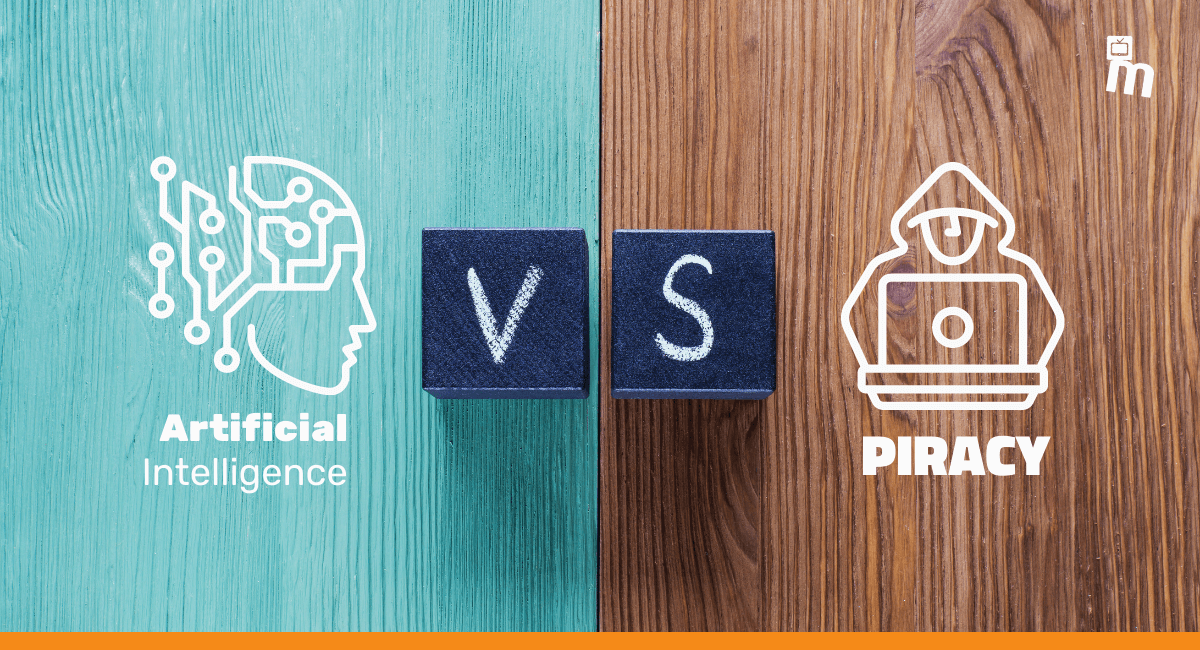Piracy is one of the media industry’s biggest problems and there seems to be no solution, or maybe there is?

The study published by the European Union Intellectual Property Office last week aims to shed some light on the impact of AI technologies on copyright infringement and enforcement. The study explains how AI can tackle the piracy problem in the IPTV world while taking the current criminal environment into account.
The study indicates that convolutional neural networks adopted by AI (a deep learning algorithm) can track the tools unauthorized streaming services use to stream copyrighted content and collect data for behavioural analysis from customers that use those unauthorized services. The study also shows that AI technologies can track the marketing of unauthorized streaming services through computer vision to recognize the content and its similarity with the original content. And the best part is, through AI, all the data collected can easily be shared with law enforcement for investigation.
The study forms 20 different scenarios to demonstrate the current and possible exploitation of AI technologies to infringe copyright, as well as to use AI to prevent infringement. It is a practical guide to keep up with the newest cybercrime trends.
The study published by the European Union Intellectual Property Office last week aims to shed some light on the impact of AI technologies on copyright infringement and enforcement. The study explains how AI can tackle the piracy problem in the IPTV world while taking the current criminal environment into account.
The study indicates that convolutional neural networks adopted by AI (a deep learning algorithm) can track the tools unauthorized streaming services use to stream copyrighted content and collect data for behavioural analysis from customers that use those unauthorized services. The study also shows that AI technologies can track the marketing of unauthorized streaming services through computer vision to recognize the content and its similarity with the original content. And the best part is, through AI, all the data collected can easily be shared with law enforcement for investigation.
The study forms 20 different scenarios to demonstrate the current and possible exploitation of AI technologies to infringe copyright, as well as to use AI to prevent infringement. It is a practical guide to keep up with the newest cybercrime trends.
Piracy is one of the media industry’s biggest problems and there seems to be no solution, or maybe there is?

The study published by the European Union Intellectual Property Office last week aims to shed some light on the impact of AI technologies on copyright infringement and enforcement. The study explains how AI can tackle the piracy problem in the IPTV world while taking the current criminal environment into account.
The study indicates that convolutional neural networks adopted by AI (a deep learning algorithm) can track the tools unauthorized streaming services use to stream copyrighted content and collect data for behavioural analysis from customers that use those unauthorized services. The study also shows that AI technologies can track the marketing of unauthorized streaming services through computer vision to recognize the content and its similarity with the original content. And the best part is, through AI, all the data collected can easily be shared with law enforcement for investigation.
The study forms 20 different scenarios to demonstrate the current and possible exploitation of AI technologies to infringe copyright, as well as to use AI to prevent infringement. It is a practical guide to keep up with the newest cybercrime trends.

